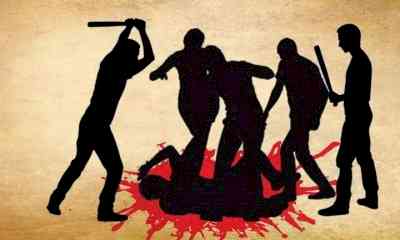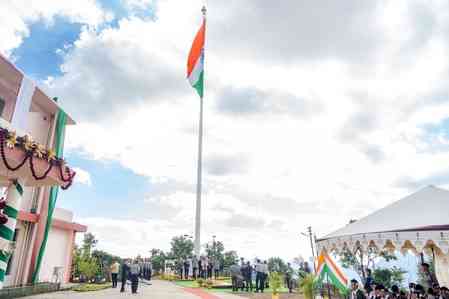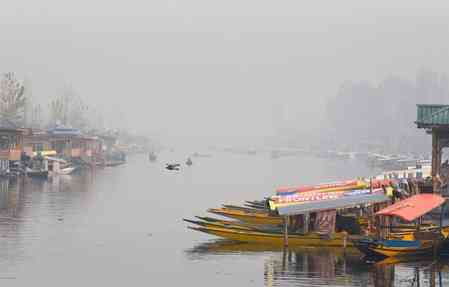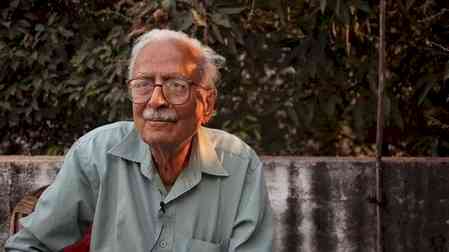Bangladesh: Over 635 people killed in mob lynching incidents since August 2024, says report
At least 637 people, including 41 police officers were killed in mob lynching incidents in Bangladesh from August 2024 to July 2025, marking one of the deadliest waves of extrajudicial killings in country's recent history. The political transition after the August 2024 uprising, which saw ouster of Bangladesh Prime Minister Sheikh Hasina from her office, has seen a rise in mob violence in Bangladesh, said a report by leading Canadian agency.

Dhaka, Aug 3 (IANS) At least 637 people, including 41 police officers were killed in mob lynching incidents in Bangladesh from August 2024 to July 2025, marking one of the deadliest waves of extrajudicial killings in country's recent history. The political transition after the August 2024 uprising, which saw ouster of Bangladesh Prime Minister Sheikh Hasina from her office, has seen a rise in mob violence in Bangladesh, said a report by leading Canadian agency.
"A total of 51 lynching deaths were recorded in 2023, under the Sheikh Hasina-led government. Mob lynching deaths rose more than 12 times in comparison to 2023," Canada-based Global Center for Democratic Governance said in a report on Saturday.
As many as 24 people were burnt to death at 'The Zabeer Jashore Hotel' in Jashore on August 4, 2024. Among 637 deaths, 182 people were burnt in Gaji Tyres in Rupganj, Narayanganj on August 25, 2024. According to the report, the names and details regarding the victims were not published. In the report, Global Center for Democratic Governance stated that they could not gather complete information on all mob lynching deaths due to strong media censorship and stressed that the list should be considered incomplete.
In the report, Global Center for Democratic Governance stated, "This sharp increase underscores a dangerous erosion of law and order during a period of political instability and weakened state control. The fall of a longstanding regime created both a power vacuum and a public crisis of confidence in the country’s justice system, which many now perceive as either absent or co-opted by political agendas. With police forces overstretched, court systems paralyzed, and local leaders either targeted or in hiding, citizens increasingly took justice into their own hands."
According to the report, public spaces which were once protected by law have now become flashpoints for mob killings, often caused by nothing more than suspicion, rumour, or political resentment. The report noted that a large portion of the violence had political or communal undertones while many incidents stemmed from accusations of theft or harassment.
Local human rights organisations have said that more than 70 per cent of lynching victims since August 2024 had links with Bangladesh's former ruling party Awami League or its affiliated student and labour wings. Other victims included religious minorities, especially Hindus and Ahmadiyya Muslims, accused of blasphemy or conspiracy through viral posts on social media—often with little or no evidence.
One of the most horrific incidents involved the public lynching of a Hindu social worker, Lal Chand Sohag, outside Mitford Hospital on July 9. His death was livestreamed on social media platforms, sparking public outrage and fear. As per the report, misinformation and inflammatory content have played an important part in mobilising mobs within minutes.
A post shared on Facebook claimed that a Hindu person had desecrated the holy book, leading to a mob attack, that claimed two lives while led to torching of several houses. After a few hours, the claims made in the Facebook post were proven false. However, the damage caused due to it was irreversible.
Bangladesh's interim government, led by Muhammad Yunus, has vowed crackdown on vigilante justice but its promises proved hollow. violence. Only a handful of arrests have been made over mob killings and only a few got convicted. Critics have stressed that Yunus-led government has prioritized political consolidation over the rule of law, with a focus more on purging remnants of the former regime than restoring judicial order. People's confidence in institutions of Bangladesh continues to decline.
A recent survey by the South Asian Network on Economic Modeling (SANEM) revealed that 71 per cent of Bangladeshi youth believe that mob violence has become a regular part of public life, and 47% fear becoming a target of politically motivated attacks.
The report warned that the mob justice may become a permanent feature of Bangladesh's political landscape if urgent and systemic reforms are not made, including police restructuring, judicial independence, digital misinformation controls and civic education.
--IANS
int/akl/mr


 IANS
IANS 










